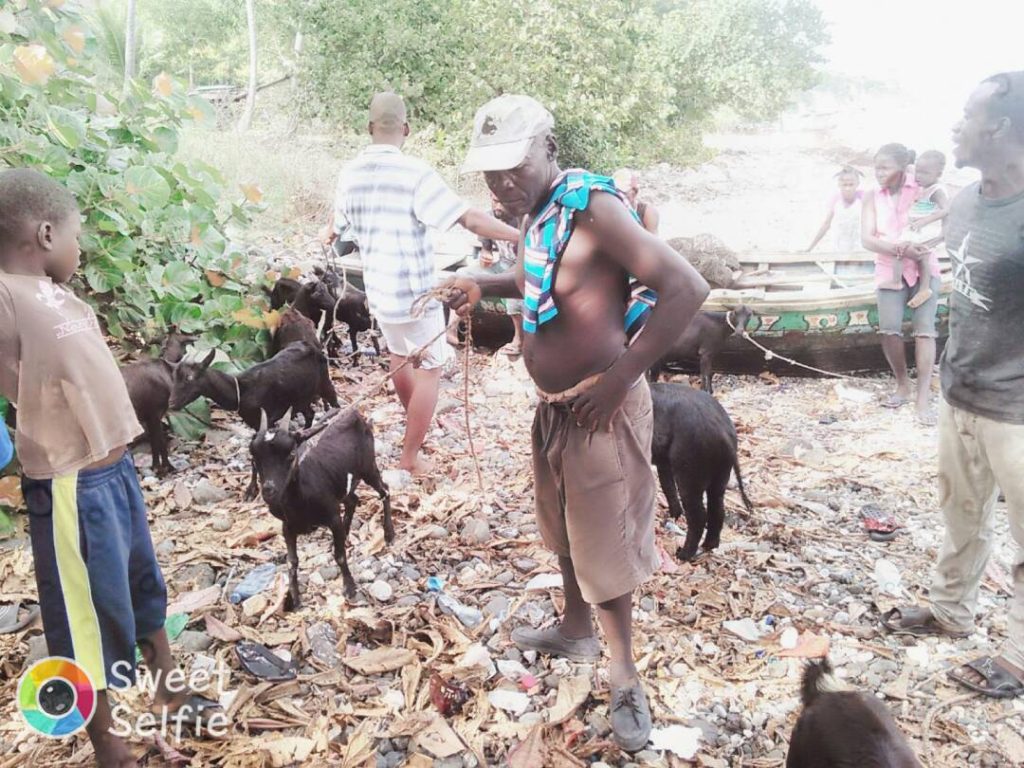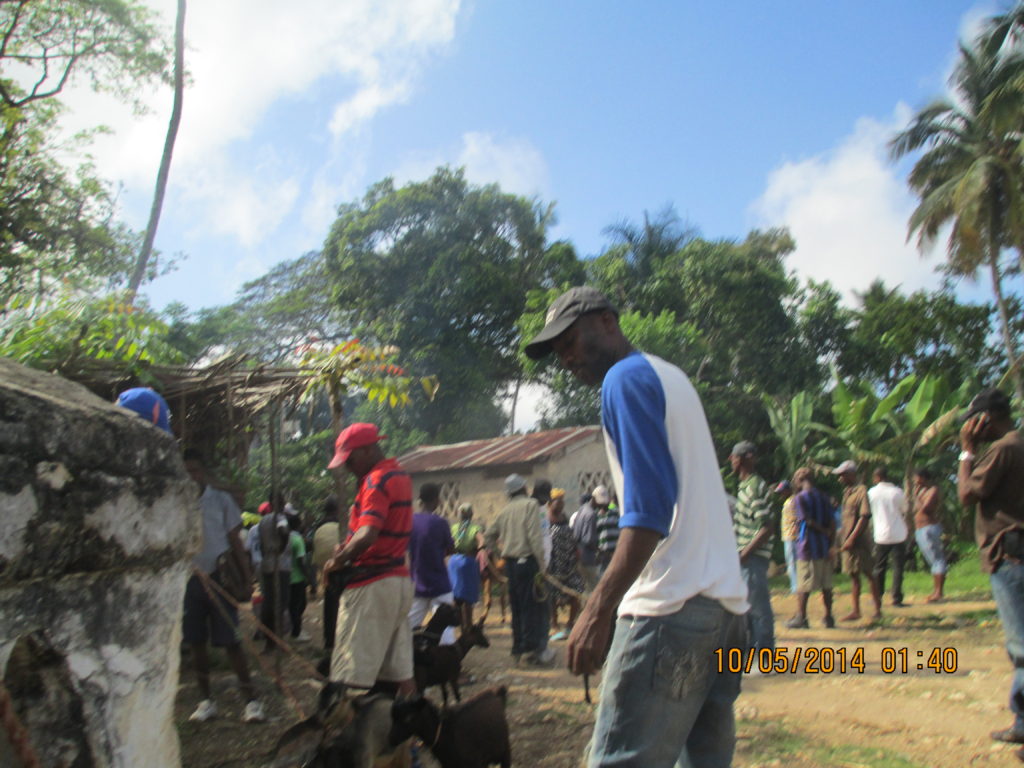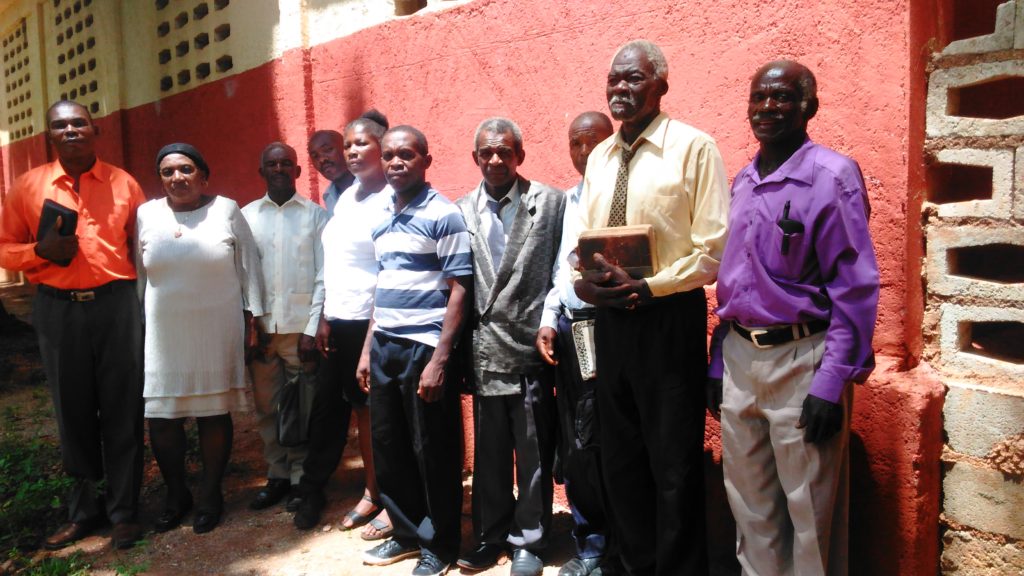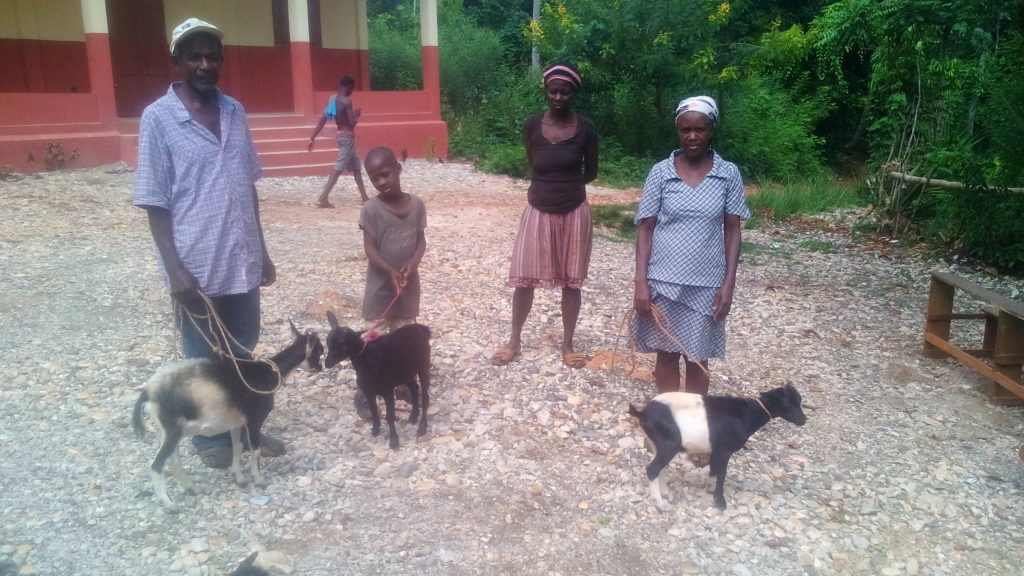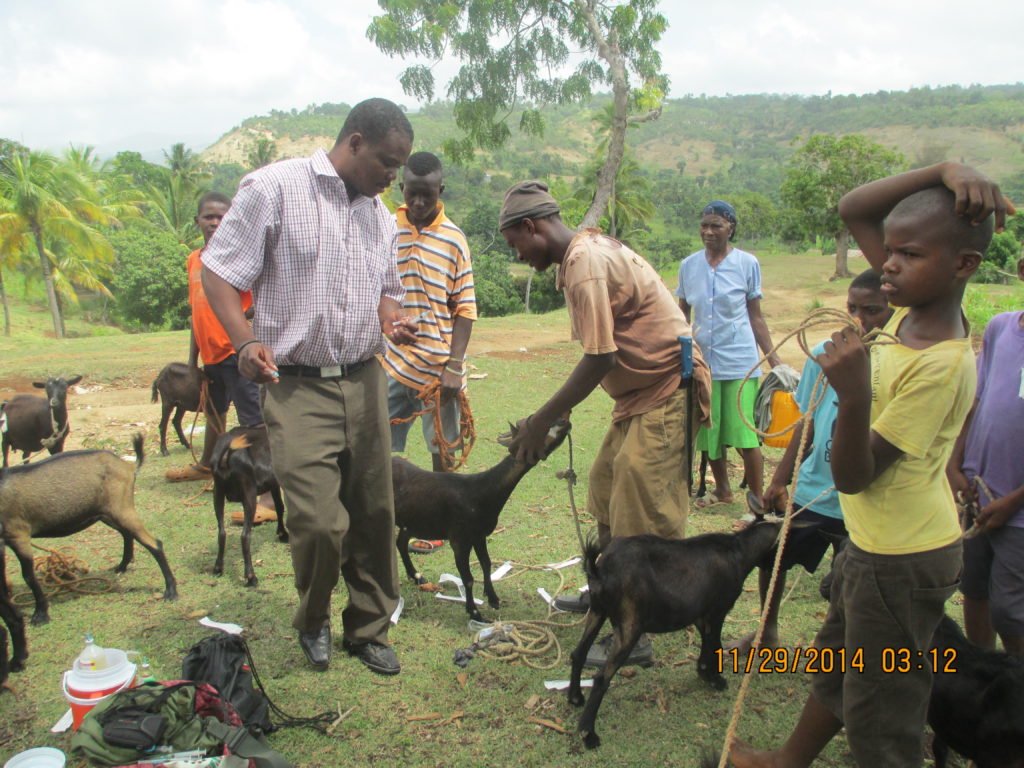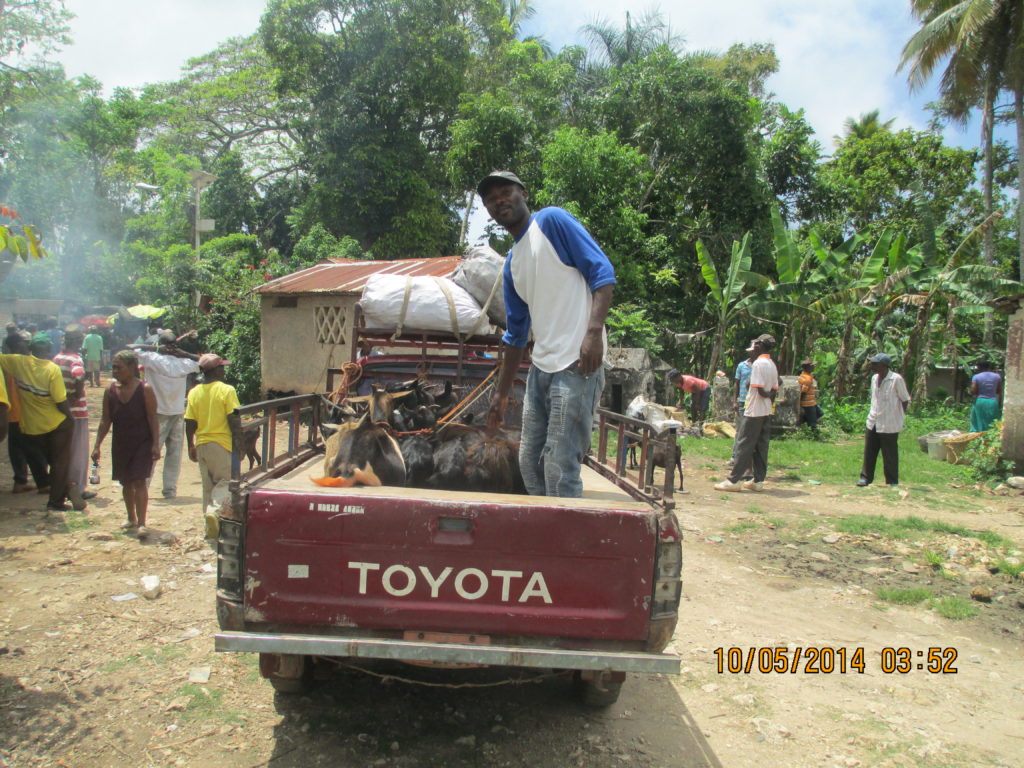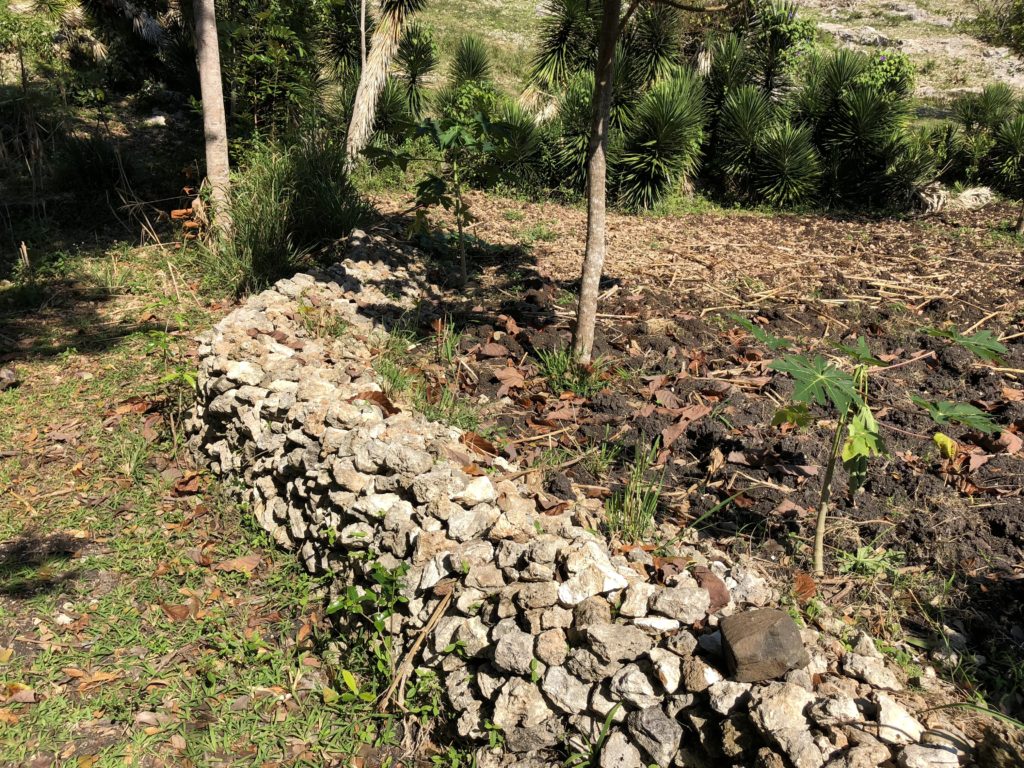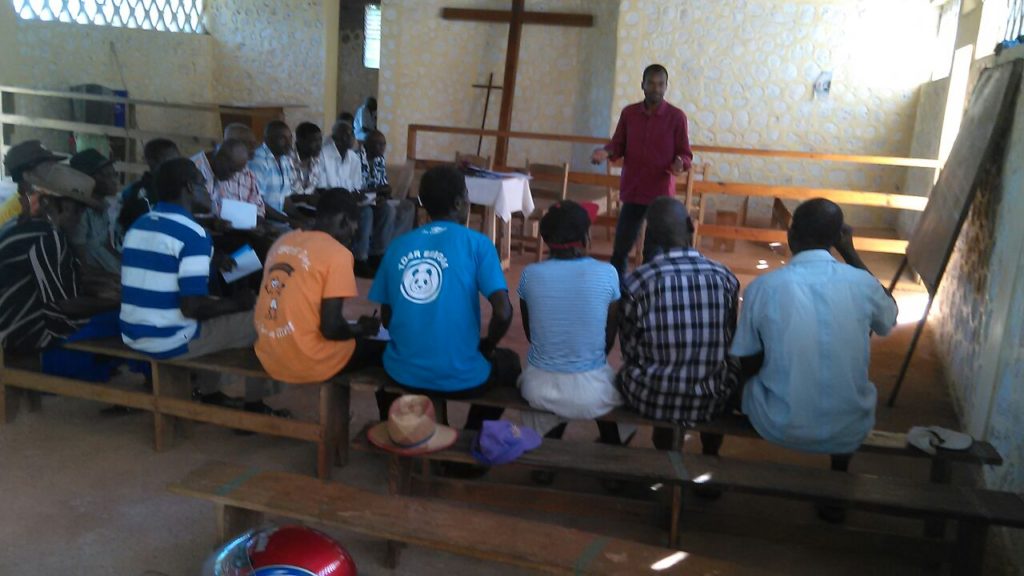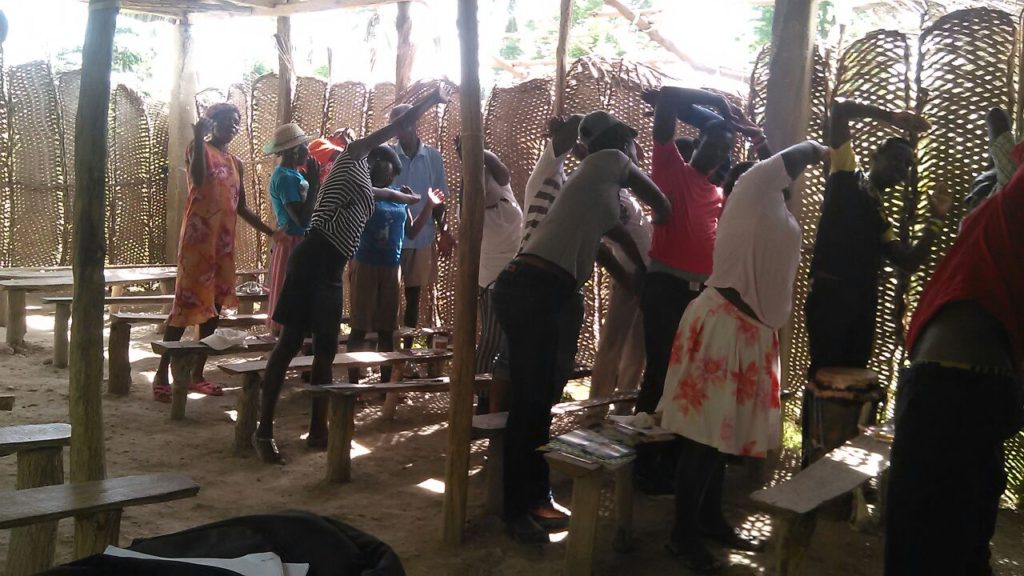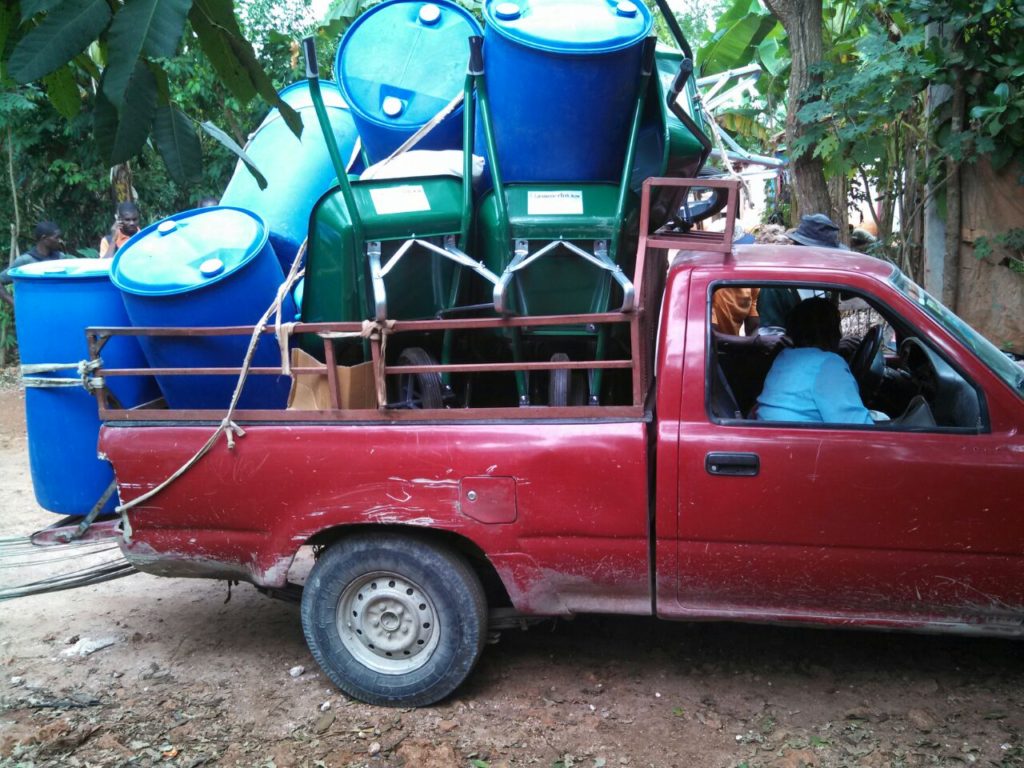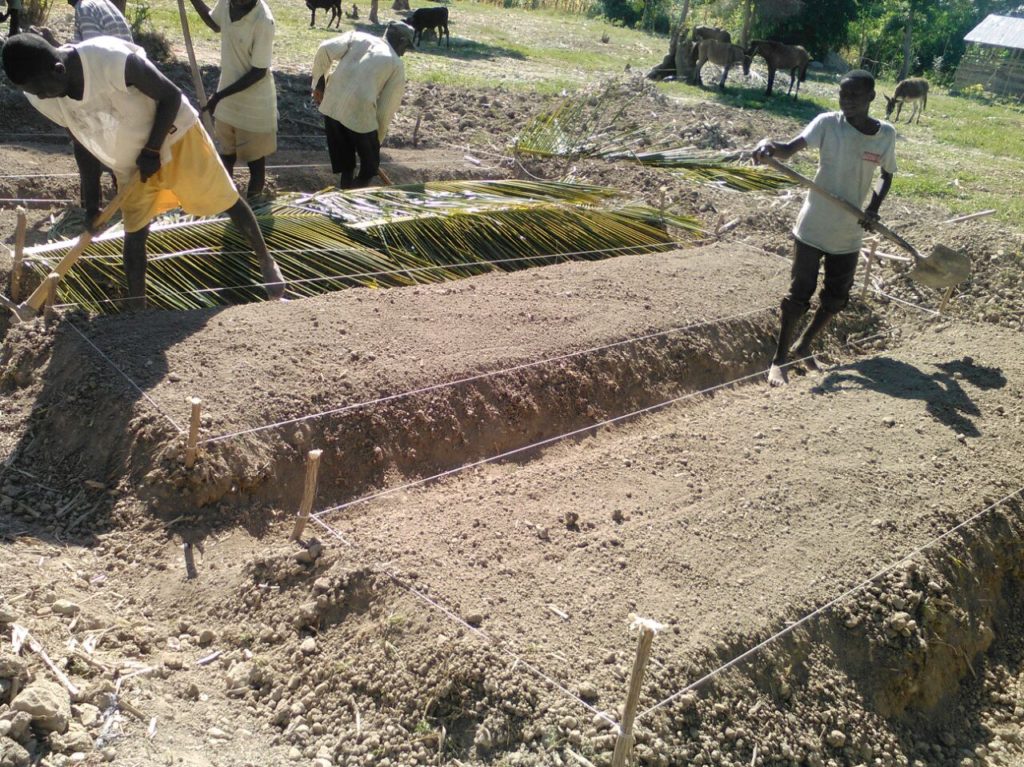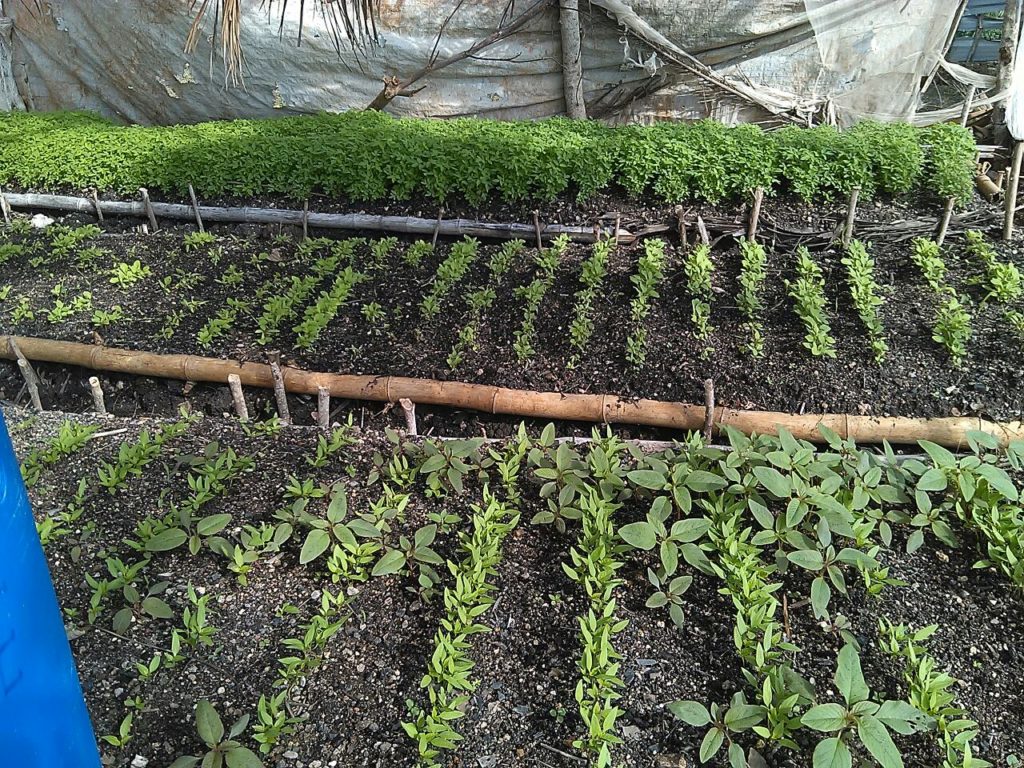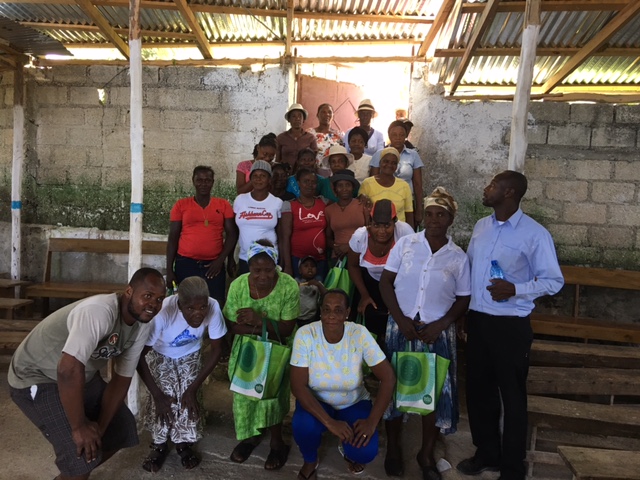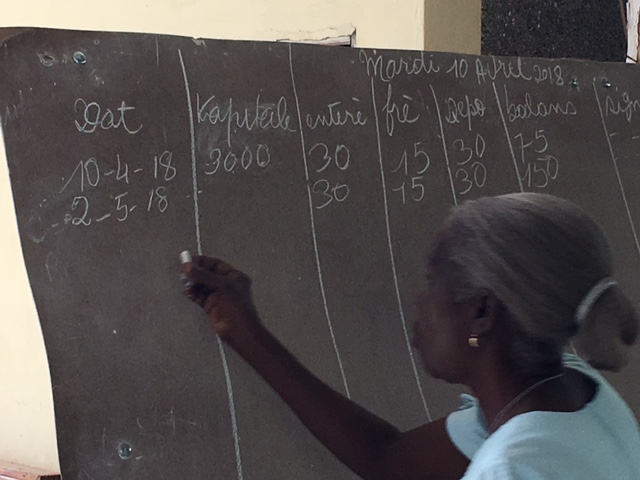The Haiti Economic Empowerment Committee is made up of 3 components: The Livestock Program, The Agriculture Program and The Women's Bank.
Livestock Program
“Get One, Give One”
The aim of the SMM Livestock Program is to provide economic backup in the lives of the people of our sister parish in Haiti. For many parishioners, an animal is their only bank account, something to rely on in years of bad crops, bad health, hurricanes or even earthquakes.
- The program begins with donations from SMM to buy animals.
- Parishioners in each chapel sign up to get an animal. Their Livestock Committee keeps the list and notifies people when they are going to receive an animal.
- Before they can get an animal, recipients must attend a training session in animal care given by our man in Haiti, Baba.
- Then animals are selected at a market and given to those recipients who raise them. Baba inoculates each animal and gives it appropriate medicines.
- The first baby born to the animal must be returned to the Livestock Committee which in turn gives it to the next person on the list. Does this work? Is it sustainable? Yes, in the past 4 years, SMM provided the funds for 718 goats and 40 pigs. To date, recipients have already passed on 478 first-born goats and 44 first-born pigs. And the program keeps on going.
- After parishioners have given the first-born animal to the Committee, all other babies are theirs to keep or to sell.
- What they do with the money they make when they sell an animal often depends on the age of their children. Some, like Madame Martinesse use the money to send their children to school. A few help their older children travel to Chile to find work.. A lucky few like Madame Josephat have already raised their children and can use the money to buy a donkey.
- During the past year Baba has been preparing the Livestock Committees for the time that SMM goes on to a new parish in Haiti. They know that they must continue to pass along the first-born animal to a new family. At least one but more often two people in each chapel have been trained to be livestock technicians. They have learned to give inoculations and administer medicines as needed. Each committee has begun to save money from the sale of male animals in order to be able to purchase medicines in the future.
The Agriculture Program
The project was funded and initiated on December 1st of 2016 with the goal of providing a positive economic impact in the lives of the farmers form the 7 participating chapels in this are by providing:
- Regionally appropriate agricultural training
- Access to a local agronomist for ongoing consulting
- Access to quality seeds, tools and a seed bank system
- Establishing a seedling nurseries in each chapel
- A program for soil conservation and erosion control
Staff
Jacmel trained agronomist Antonio Laurent works in tandem with 2 Agriculture Technicians that travel between the chapels and each chapel has a co-op organizer responsible for the seedling nurseries, seed saving banks and provides reports to the ag techs.
Participants
From December 1st of 2016 through February of 2018 there were 20 participating farmers in each chapel with 140 total participants. At the end of this primary phase the project was funded for a second phase so that an additional 10 famers in each chapel could participate. In total there have been 200 farmers positively impacted by this program.
Trainings
- Environmental protection and Nursery Building Techniques
- Planting techniques for mountainous terrain
- Pests, Disease and Best Management Practices
- Fruit Tree Grafting and Agro Forestry
- Erosion Control and Soil Conservation Techniques
- Seed Saving and other trainings
Nurseries
- Seedling Nurseries were established in all 7 chapels
- Soil was prepared and seeds were planted in these protected areas
- Co-op organizers in each chapel are responsible for the care and maintenance of the nursery
- Typically tomatoes, eggplant and red/green peppers are grown and then distributed to the farmers for transplanting in their fields. Other crops like corn, beans, peas and other are planted directly into the farms.
- Fruiting trees, citrus grafts, coffee plants and other varieties were also distributed
Erosion Control
The area we serve is called La Montagne or The Mountain. It is very steep and makes farming challenging. Haiti’s rampant deforestation over the last century has created rampant erosion and loss of top soil. Because most of our farmers are cultivating these steep hillsides, soil conservation practices have been taught and implemented.
The best technique is to create rock dams along the ravines and when the heavy rains come pouring down the ravine the damns slow the water long enough so that the silt it is carrying is deposited behind the ramp thus creating soil where there was none before.
In addition fast growing trees and grasses are planted along these ravines and along erosion prone slopes to hold the soil in place with their roots.
Seed Bank
After the initial season the participating farmers give are required to give a portion of their harvested seeds back to the program to be loaned in a similar fashion to new or existing farmers. After the first 2 seasons the seed bank had enough seeds stored up to be sustainable without future seed purchases.
Participant Story
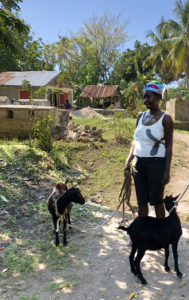
Madam Fifin
"With the trainings I’ve been able grow more crops and if I had any problems with my farm Antonio or one of the ag techs would come and help me solve the problem.
Thanks to the agriculture program I have been able to make much more income at the market. While others are having to go all the way to Jacmel, many miles away, to purchase tomatoes to resell at our market, I simply harvest my tomatoes on market day and walk a few minutes and I’m able to sell them. The others reselling tomatoes must ask more money because they had to travel to buy them. So I always sell mine at a good price and I don’t have to go to Jacmel.
In the first season I made so much money that I was able to purchase a goat for myself. That was just with my small garden. I started the program with only a small garden, but because I could see what a success it was I have expanded my garden to also grow peppers and it is doing very well."
The Women’s Bank
In Haiti, women are the primary buyers and sellers of goods and services. These women often have their own very small businesses. However since they do not qualify for traditional loans, which require collateral, and micro-lenders can charge interest rates as high as seventy percent, they have little access to the capital needed to develop their business. Access to low-interest business loans is critical for the local economy.
Thanks to the generous support of Saint Margaret Mary Church parishioners, we have been helping women in Haiti for the past 12 years. Since 2014, SMM has funded five Women’s Banks in Our Lady of Perpetual Help parish, with 126 members total. Women are particularly connected to one another in their community, receiving these business loans help them feel empowered to change the lives of their families. Women are encouraged to set and achieve their own goals. During a three-day training, they receive basic bookkeeping, money management, marketing approaches and successful business strategies. Participants develop networks, exchange ideas and learned techniques for building strong businesses. Over time, these women become agents of change in their local communities.
Bank Set-up
- Twenty to twenty-five women are chosen to participate in a new bank
- Many women already conduct small businesses in the local markets, loan money allows them to expand their businesses to become profitable
- Women are chosen from all seven of the chapels in OLPH
- A three-day training is scheduled to teach bookkeeping and money management
- Past recipients of loans run the training and are mentors to new members
- Officers of each bank are appointed to conduct monthly reporting and collect interest payments
- Each participant receives the equivalent of a $200.00 loan
- Interest is collected monthly. 1.5% interest and 1% to deposit into their individual savings account to encourage financial responsibility
Results
- Participating women report a positive change in their lives, many women use their profits to pay for their children’s school tuition and to buy household goods.
- All participating women pay their interest installments with no defaults
- The mission is sustainable. Women are added and trained with the funds collected and as the bank becomes more profitable, more women can be added yearly.

